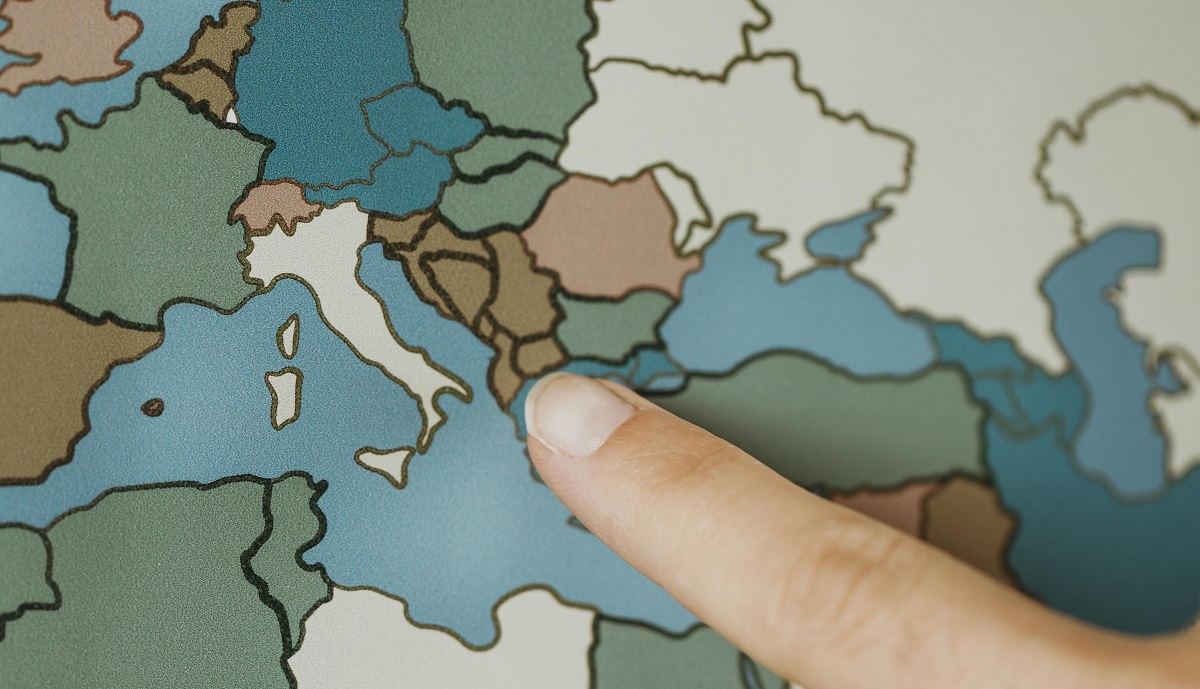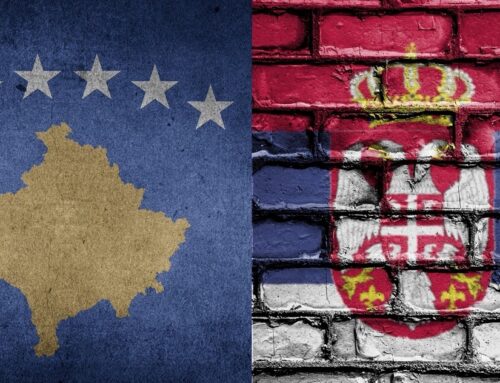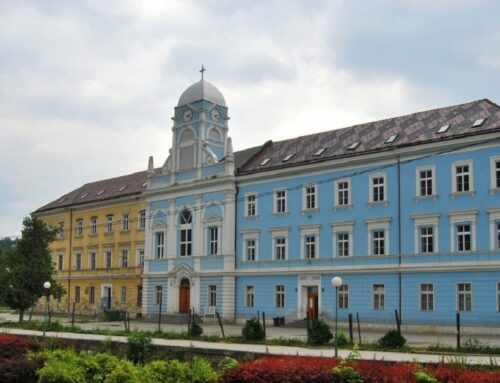The Balkans, situated at the crossroads of East and West, have witnessed the enduring influence of Russia throughout history. This paper seeks to investigate the multifaceted role played by Russia in the region, examining the ways in which its engagement has shaped Balkan politics, economics, and culture.
In order to better understand Russia’s involvement in the Balkans, it is necessary to closely explore the political ties forged between Russia and specific Balkan nations. These relationships have shaped domestic politics, influenced foreign policy decisions, and, at times, even influenced the region’s delicate balance of power. Russia and the Balkans have a long history that is interconnected, not only with geopolitical interests and cultural linkages, but also with religious relationships. This persistent connection has impacted the region’s history and continues to have an impact on current dynamics.
Starting off with the shared religious heritage of Orthodox Christianity, this bond is precepted to not only have fostered cultural affinity but also provided a platform for Russia to establish close political ties with several Balkan countries. These religious ties have played a crucial role in shaping the Balkan culture and societies, offering a shared religious identity and cultural connection with Russia. With control contested by the Catholic Western powers and Islamic Ottoman empire, Russia established itself as an ally and protector of the Orthodox Christian Slavs, thus playing a balancing role in the realm of religion. These shared religious values between Russia and the Balkans are used to strengthen ties with political leaders, churches and independent groups among the region’s Orthodox Christian population which includes significant percentages in Bosnia and Hercegovina, especially in its autonomous entity Republika Srpska, but also the majorities in countries such as Serbia, Montenegro and North Macedonia. Besides that, also among minority groups in non-Christian countries, such as Albania and the Republic of Kosovo.
What earned Russia a lot of goodwill and set its image as a liberator and protector of fellow Orthodox Christians was Russia’s liberation role during the Ottoman Empire’s dominance over the Balkans during the 19th century. Russia played a key factor in helping and supporting Balkan nations’ struggles of independence.
In the following century, in the early 1900s, the Balkans became embroiled in a series of conflicts known as the Balkan Wars, which happened when Serbia and Greece with the support of Montenegro and Bulgaria formed the Balkan League and declared war against the Ottoman Empire. Russia’s interests intersected with the geopolitical struggles in the region, leading to complex alliances and rivalries. However, the outbreak of World War I drastically altered the dynamics, as Russia’s involvement in the wider conflict shifted its focus away from the Balkans temporarily.
The early 20th century was a critical period in the Western Balkans, marked not only by the Balkan Wars, but also by the rise of Communism as a prominent ideological force. The movement that advocated for the unity of Slavic people, known as Panslavism, became an influential idea. During this period, the newly formed Soviet Union aimed to expand its influence in the Balkans by supporting Yugoslav nationalist ideas adhered by communists. And as part of the Eastern Bloc, Balkan countries found themselves under Soviet influence and aligned with Russia’s geopolitical interests. Nonetheless, the leader of Yugoslavia, Josip Broz Tito, concerned about the paternalist approach of Stalin towards his country, lead a breakaway from Soviet influence, thus playing a crucial role in the region’s geopolitical dynamics. Tito promoted a distinct socialism known as Titoism, which sought independence from both the Eastern and Western Bloc. Yugoslavia emerged as a leader of the Non-Aligned Movement under Tito’s leadership, seeking a middle ground between the East and West, and establishing its autonomy in the broader international arena.
As we can see, the Soviet influence in the Balkans had its complexities and tensions. While the region was drawn to the socialist ideals propagated by the Soviet Union, there were also internal struggles within communist parties, leading to ideological and political rifts. The Soviet Union’s attempts to exert control over the direction of Balkan communist movements often resulted in resistance and the pursuit of independent policies by some nations.
With the collapse of the Soviet Union and the end of the Cold War, the Balkans witnessed a significant shift in geopolitical dynamics. Russia sought to maintain its influence in the region, particularly in Serbia and Montenegro, which had historical ties with Moscow. The disintegration of Yugoslavia further complicated the regional landscape, leading to conflicts and power struggles in which external actors, including Russia, were involved to varying degrees.
In the post-Cold War era, Russia’s role in the Balkans has evolved amidst geopolitical rivalries with Western powers. The region has become a stage for competition between Russia and the European Union, as well as NATO. Russia’s support for Serbian nationalistic and anti-Western political factions, its involvement in energy projects, and its efforts to maintain cultural ties have contributed to ongoing regional complexities.
Beyond the realm of history and politics, it’s important to examine Russia’s influence in the region through an economical perspective. This paper seeks to contribute to a deeper understanding of this pivotal relationship and its lasting impact on regional stability and international relations, which is why the political, economic, and cultural ties between these regions need to be closely examined.
A significant aspect of Russia’s role in the Balkans is its economic relations with the region, which has shrunk in the wake of an economic recession and international sanctions over the annexation of Crimea. Energy cooperation and investments have been a significant aspect of this relationship, providing Russia with leverage while simultaneously impacting the economic development and energy security of Balkan nations. As the primary pillar, energy cooperation, has great influence in Serbia, North Macedonia and Bosnia and Herzegovina, who remain almost entirely dependent on supplies of Russian gas, thus leading to Russian energy companies dominating the region’s oil and gas sector. Unlike Montenegro, Albania and Kosovo, whose supplies come from Azerbaijan fields, and who consume little to no Russian gas.
Since 2008, Russia has strategically used its resurgent economic power, security networks, and traditional soft power methods to exploit and magnify strategic vulnerabilities in the Western Balkans. This soft power approach involves media propaganda and the manipulation of historical, religious, and ethnic symbols.
Over the past few years, there has been a growing network of committed Russian institutions that offer aid, both financial and otherwise, to organizations and collectives dedicated to advancing Russian interests. Furthermore, there has been a notable drive by Russia to encourage numerous media outlets to establish Serbian language divisions, many of which prominently cover political affairs. Since 2012, a considerable array of websites has emerged, overtly endorsing Russian interests within Serbia. Noteworthy among these are Sputnik, Novi Standard[1], Srbin.info[2], Vaseljenska TV[3], alongside smaller portals such as Gazeta[4], Fakti[5], Kremlin[6], and Glas Moskve[7], all of which all have substantial influence.
The activities of these organizations can be put in different categories. Firstly, through these outlets, they make sure to promote Russian perspectives on international affairs and history. Secondly, they attempt to undermine Western institutions, such as the EU and NATO, claiming that they endanger world peace and stability, as well as they oppose Serbia’s interests. Thirdly, they portray Russia as Serbia’s closest ally, whose actions are always aligned with Serbia’s objectives. Fourthly, they tend to criticize pro-European actions and present Serbia as a country repeatedly humiliated by the EU and the US. Last, but definitely not least, their continuous focus lies in reminding audiences of historical disputes and conflicts between Serbia and its neighbouring countries, seemingly aimed at hindering Serbia’s EU integration and the reconciliation process in the region.
In addition, Russia has leveraged its media influence to reignite ethnic divisions in the area. Interestingly, it is Montenegro, rather than Bosnia and Herzegovina or Serbia, where Russia has displayed the most assertive interference in politics. Following the Montenegrin government’s announcement in 2014 of its intention to join NATO and its support for EU sanctions against Russia in response to the annexation of Crimea, Russia actively attempted to prevent Montenegro from joining NATO, funding radical ethno-nationalist groups whose goals defied Western and liberal norms. Russian Deputy Prime Minister Dmitry Rogozin went even further, warning that Montenegro will come to regret its membership.
Overall, Russia’s influence in the Balkans is characterised by a dynamic combination of both, historical and religious links, geopolitical rivalries, and soft power strategies. Understanding and addressing Russia’s role is critical for both Balkan nations and the international community as the region continues on its path to stability, peace, and development.
References:
Council on Foreign Relations. Russia’s influence in the Balkans. Council on Foreign Relations. https://www.cfr.org/backgrounder/russias-influence-balkans#chapter-title-0-3
The Economist Newspaper. The war is forcing Russia’s Balkan friends to recalibrate. The Economist. https://www.economist.com/europe/2022/06/30/the-war-is-forcing-russias-balkan-friends-to-recalibrate
European Parliamentary Research Service (EPRS). Russia and the Western Balkans: Geopolitical confrontation, economic influence and political interference (Briefing)
Center For The Study of Democracy Russian Economic Footprint in The Western Balkans: Corruption and State Capture Risks, 2018
Russia in the Balkans after Ukraine: A troubling actor. https://carnegieendowment.org/politika/87959
Surviving the war: Russia-western balkan ties after the invasion of Ukraine https://carnegieendowment.org/politika/89600
Berkley Center for Religion, P. and W. A. Russia’s influence in the Balkans: The interplay of religion, politics, and history. Berkley Center for Religion, Peace and World Affairs. https://berkleycenter.georgetown.edu/posts/russia-s-influence-in-the-balkans-the-interplay-of-religion-politics-and-history
NATO Strategic Communications Centre of Excellence. Russia’s Footprint In The Western Balkan Information Environment (Report Summary)
Dislodging Putin’s foothold in the Balkans. United States Institute of Peace. (2023, June 1). https://www.usip.org/publications/2023/06/dislodging-putins-foothold-balkans
Bechev, D., & Radeljić, B. (2018). Russia and the Balkans. Russian Analytical Digest (RAD), 226. https://doi.org/10.3929/ethz-b-000301365
Bieri, M. (2015). The Western Balkans between Europe and Russia. CSS Analyses in Security Policy, 170. https://doi.org/10.3929/ethz-a-010398137
Mark Galeotti. (2018.) Do The Western Balkans Face A Coming Russian Storm? (Policy Brief). European Policy on Foreign Relations
Egorov, B. (2020, February 28). How Russia liberated the Balkans. Russia Beyond. https://www.rbth.com/history/331756-how-russia-liberated-balkans
Encyclopædia Britannica, inc. Russo-turkish wars summary. Encyclopædia Britannica. https://www.britannica.com/summary/Russo-Turkish-wars
Berkley Center for Religion, P. and W. A. (n.d.). Russia’s influence in the Balkans: The interplay of religion, politics, and history. Retrieved from https://berkleycenter.georgetown.edu/posts/russia-s-influence-in-the-balkans-the-interplay-of-religion-politics-and-history
The World War Period https://www.britannica.com/place/Balkans/The-world-war-period
Picture: Image by Freepik





